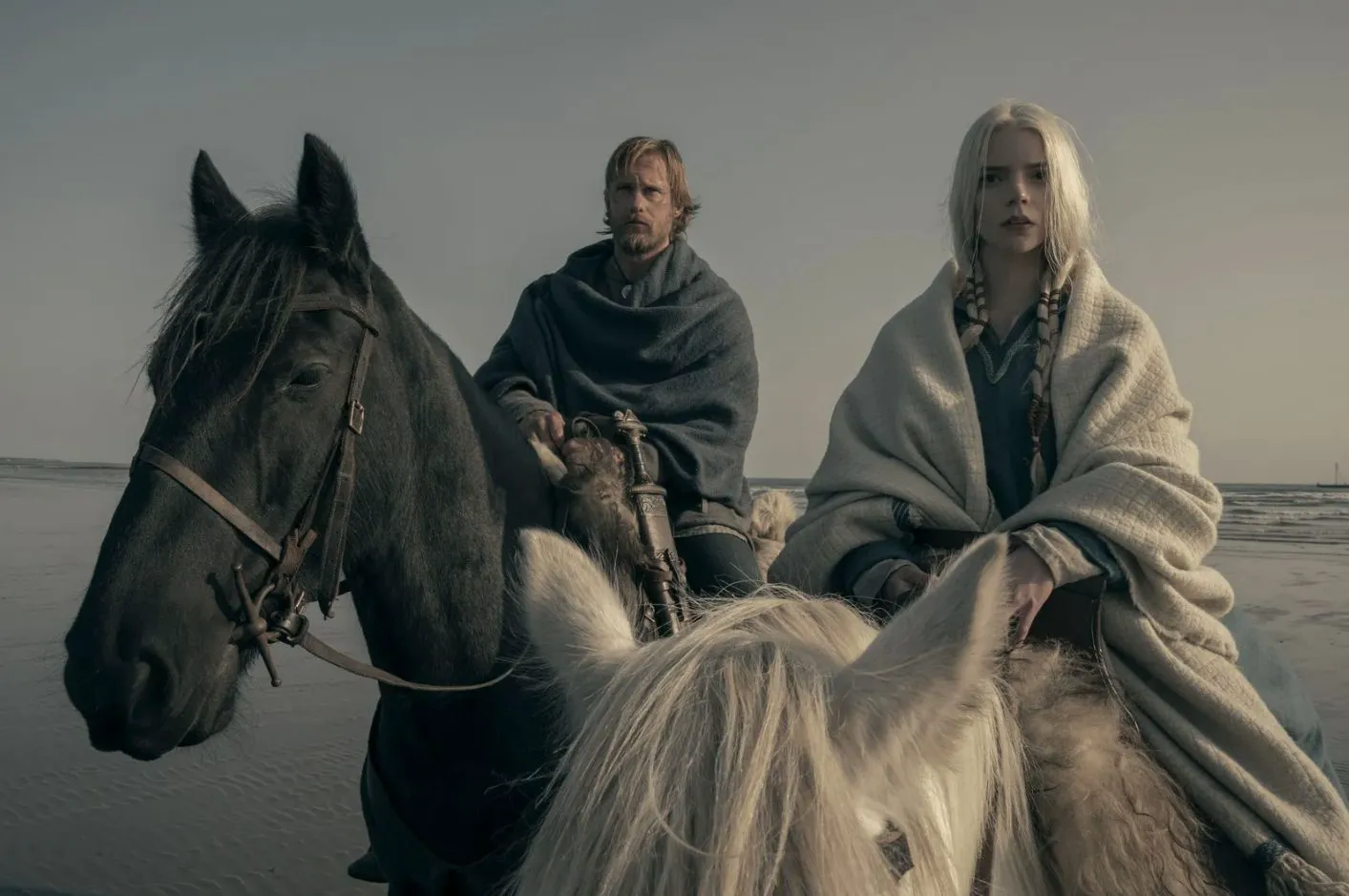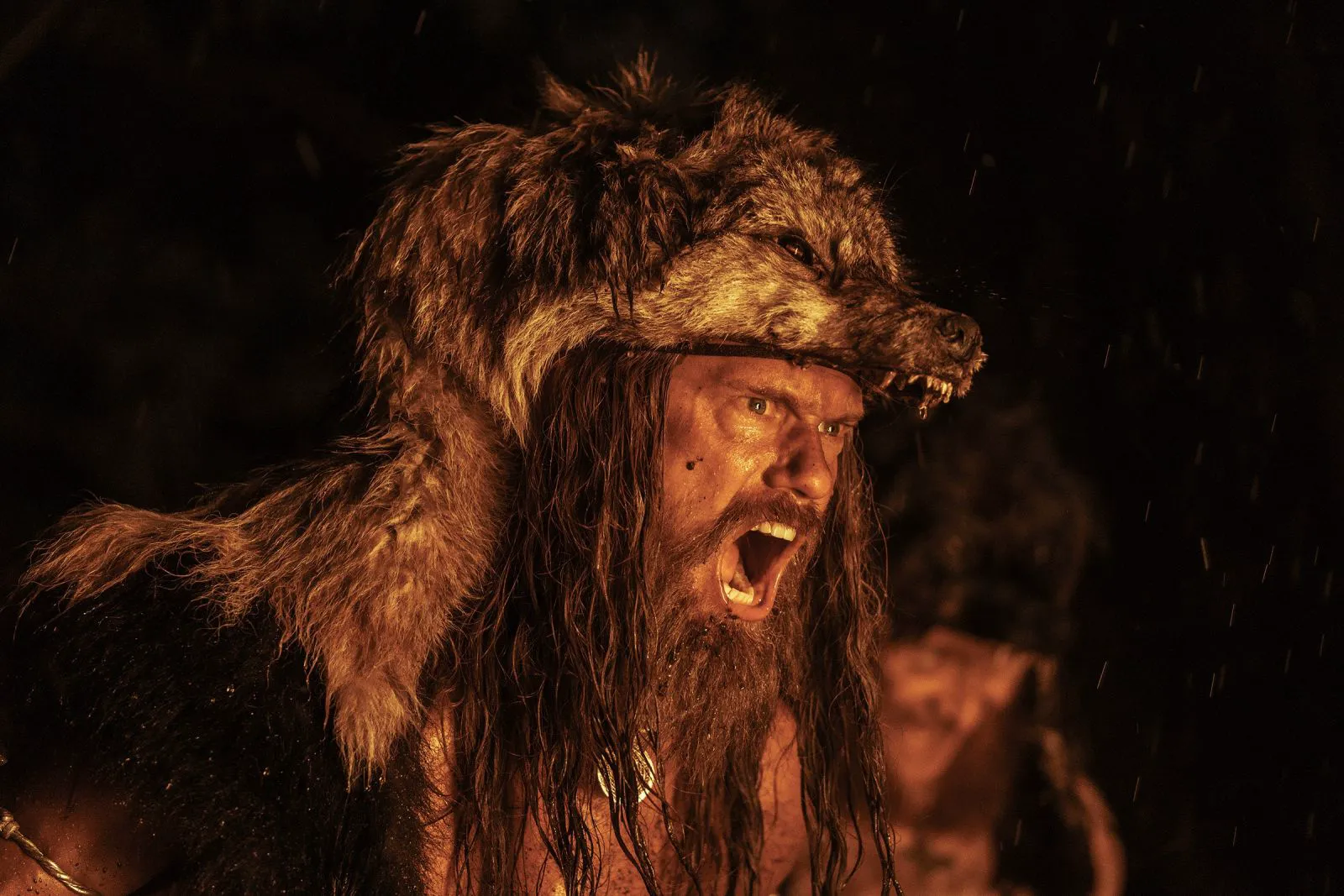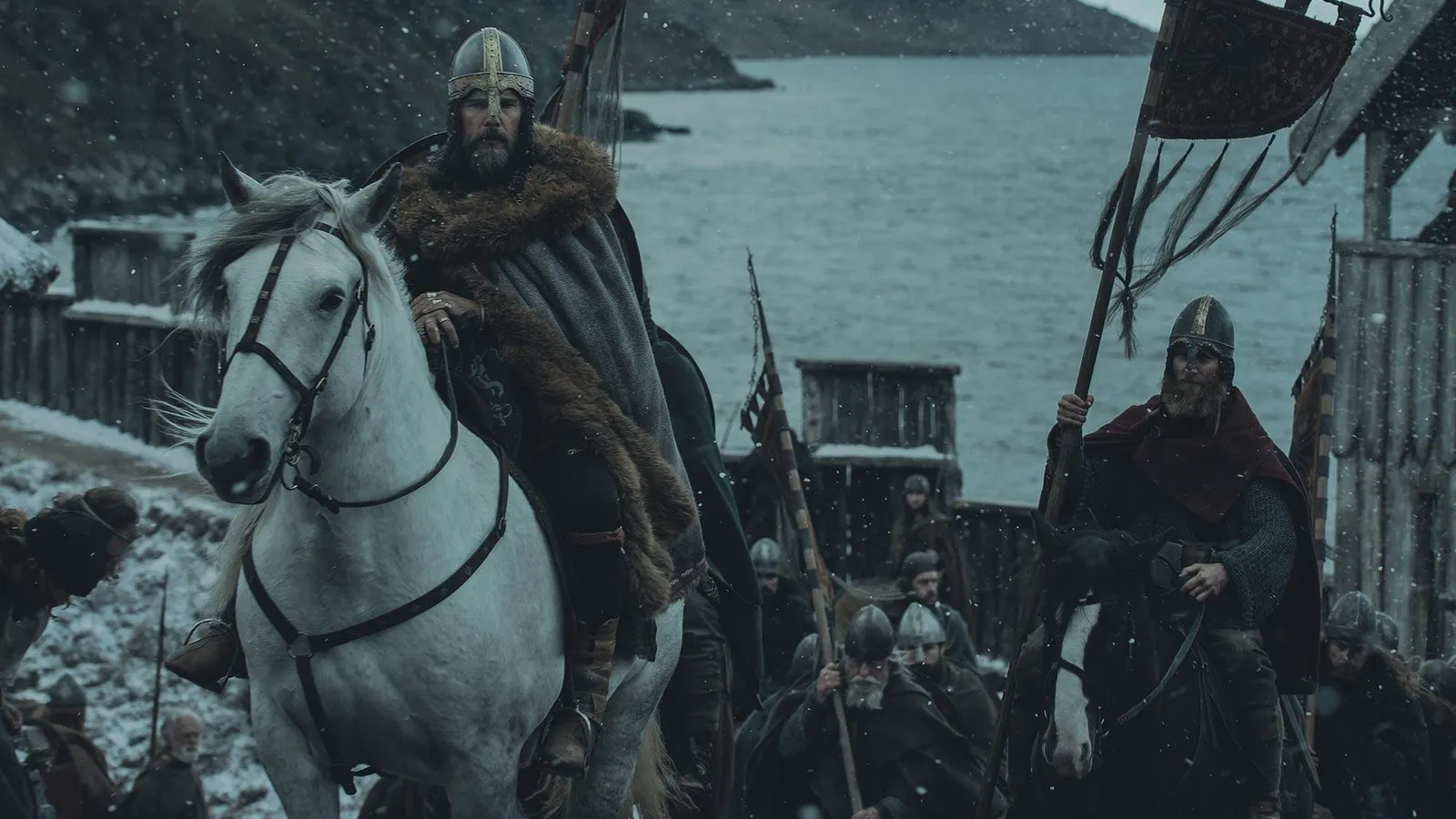Once, Robert Eggers was asked if he would ever want to make films set in modern times, to which he replied, “No, thank you.” Eggers practically kicked the door into the industry off its hinges, bursting onto the scene at Sundance with his debut horror film about 17th-century colonists, “The Witch,” where he introduced Anya Taylor-Joy to the world. He later solidified his place among the leading young directors with the utterly unhinged and talented film “The Lighthouse.” Now, the filmmaker has reached impressive budgets, and his raging imagination and boundless creative energy have found a much larger scale, going straight to theatrical audiences from a modest circle of festival screenings.
The Northman: A Viking Saga
“The Northman” is inspired by the story of Prince Amleth, written in the 13th century (the same story that formed the basis of Shakespeare’s “Hamlet,” although William denies everything, but come on! Amleth/Hamlet). Young Amleth, heir to the Danish king, witnesses the death of his father, fallen by the sword of his own brother. The boy manages to escape, repeating a vow of revenge against his treacherous uncle like a mantra. Years later, Amleth (Alexander Skarsgård) joins the Vikings, who plunder villages and sell prisoners into slavery, becoming a harsh and savage killer, but the spirits of the North remind him of his destined fate. Amleth learns that his uncle has been overthrown and moved to Iceland, where slaves from a destroyed village in Kievan Rus’ are being sent. The hero cuts his hair, dons slave clothes, and plans to infiltrate his offender’s new domain under cover, to finally avenge his father’s death and free his mother. During the journey, he meets Olga (Anya Taylor-Joy), a slave from the village that the Vikings have just torn to pieces: the girl recognizes Amleth as an enemy, but does not reveal the secret in the hope that he will help her escape.

Anya Taylor-Joy as Olga in a still from “The Northman”
Eggers didn’t come here to joke around. It’s not for nothing that the director needed fabulous sums for the production of “The Northman”: he hired professional historians, archaeologists, and costume specialists to ensure that every detail in the film was as authentic as possible. From the amulet around Amleth’s neck to the architecture of the villages, all artifacts and decorations were recreated under the strict guidance of professionals. Even the Vikings’ shields are made of wood according to the canons provided by historians. The director’s level of meticulousness is understandable: Robert Eggers began his career in cinema as a production designer, so, to put it mildly, he is passionate about the material culture on screen. Now that we can say that this is the most authentic film about Vikings, let’s move on to the most interesting part — mythology. Where would Eggers’ films be without mysticism? There is certainly enough room to roam here.

Alexander Skarsgård as Amleth in a still from “The Northman”
Myth and Madness
The mad jester-sorcerer (it’s immediately clear that we are talking about William Dafoe’s character) at the beginning of the film performs a ritual, initiating Amleth-puppy into Amleth — a war dog: in the final of the ritual, the hero sheds the last tear of his life, which is destined to be immortalized in a diamond. Since then, he will be haunted by omens of the god Odin, dream of Valhalla, and be visited by spirits with the face of the eyeless Björk. The hero’s fateful visions predict the course of history, are displayed on canvases, and speak of an inevitable finale, bringing the viewer to acute neurosis due to the tension hanging in the air. The director approached Scandinavian folklore with great interest and respect, which immediately infects the audience. Shakespearean language, of course, adds aesthetic charisma to the film: very beautiful, although little is clear without subtitles. Re-enactors and fans of the Middle Ages will most likely have to call an ambulance directly to the cinema due to acute overexcitation.

Ethan Hawke as King Aurvandil in a still from “The Northman”
A Unique Vision
All these artistic decisions and attention to detail create a unique work of art: the ancient legend seems to come to life right before our eyes, descends from dusty pages, becomes four-dimensional, and takes the viewer somewhere to Valhalla for at least two hours. However, the tone of the narrative, not very adapted to the modern viewer, is capable of knocking the ground out from under your feet: the film may seem pretentious and overly testosterone-fueled — in this case, you should immediately switch to the “Vikings” series, which has undergone gentle filtering by the History channel. Despite the purely masculine story at first glance, Eggers, still living in the 21st century, makes two women the central characters. As Olga said, “men break bones, and women break minds,” and while the guys are chopping off each other’s limbs and craving revenge, the long-haired beauties steal the show. It is also surprising that the director does not need to spend time explaining what is happening or the background of the characters: the viewer easily reads all the necessary information as the plot develops — this is another marker of outstanding storytelling.
“The Northman” turned out to be exactly the kind of film you expect from a young horror director — a bloody, uncompromising auteur statement that either instantly fascinates or repels (like “The Lighthouse”). One six-minute scene of carnage, virtuously shot in one take, can plunge you into deep hypnosis until the very credits, and whether you like it or not depends only on your personal tolerance for the sight of blood. There is no longer any doubt about the director’s skill, but there are doubts about the viewer’s willingness to vote with their money for such risky stories. The only thing that can put a spoke in the wheels of the director’s further career is the theatrical box office. It is too early to talk about this, but in the event of the failure of an expensive film about Vikings, Eggers may not be entrusted with large budgets for further projects. Then we risk being left without progressive audience blockbusters and stuck in limbo between comics and Michael Bay. But this is a problem for tomorrow’s capitalist day, and now it’s worth fastening your seatbelts, the next stop is Valhalla.are